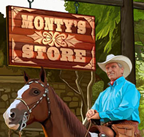I have a horse who constantly fence walks. I have had for only 5 months, but before I got her she had suffered a bout of laminitis. This means she does need to be restricted as otherwise she will founder very easily. I do make sure she has constant access to fiber but this does not stop her pacing the fence. She is in an area that is as large as possible for her and my gelding is right next to her(they can touch over the fence) but they both require to be fed very differently hence why they are not both in together. She gets herself very anxious and is almost in a trance when she is pacing up and down and sometimes gets drenched in sweat. Or when it is raining she makes a big muddy mess and is slipping everywhere. Even when she is fed she sometimes will only eat a few mouthfulls and then go back to pacing and i'm not sure why. She is fine if I go in the paddock with her but as soon as I need to leave she starts to pace again. I have tried a treat ball that she has to push around and work to get a little bit of stuff out to eat to keep her occupied, but she will only play with it if I am there. I try to increase her feeding time and do plenty with her to keep her occupied but she still seems to pace the fence. She even has been lame recently and she still continues to try to pace the fence. I am so confused as to what is upsetting her and causing her to pace the fence as my gelding is not normally upset at all when she is pacing up and down. I'm just wondering if anyone has had this problem and has any idea why she is doing this and how I can help her to relax and settle down and stop the fence walking. I am extremely worried that it is bad for her joints and etc.
Thank you to anyone who may offer some advice!




Thank you very much for your response! Over the past few months I have been trying many different things with my horses but so far nothing has really been a solution, but I will keep experimenting! My horses used to be together but my mare (who paces the fence) literally eats everything and my gelding (Bart) gets very little so it becomes difficult. Bart is also 30 and retired so requires a lot of supplements to keep him in good condition where cameo literally gains weight just looking at grass! I live in New Zealand and so we are coming into winter right now so it’s important to keep him in good condition. I may trial having them together during the day and separate at night so Bart can have his supplements without cameo eating everything that she doesn’t need! But hopefully during winter it will be a bit easier to manage as the grass looses its nutritional value and stops growing and so they can be together full time and just be separtated for hard feeds.
Thank you again for replying!! I will keep trying and see what works and what doesn’t!
Gemma